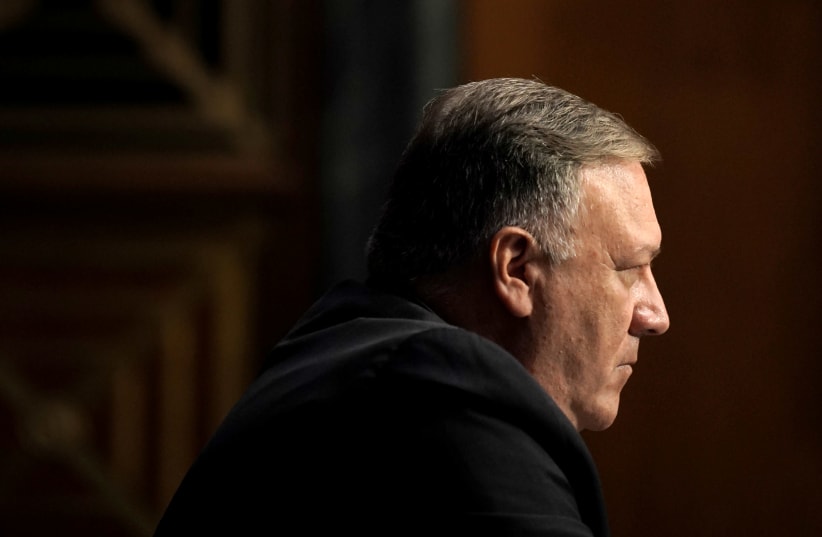US Secretary of State Mike Pompeo came on what is likely to be his last visit to Israel in office – with some generous parting gifts for Israel.
First, Pompeo announced that the State Department would consider the anti-Israel Boycott, Divestment and Sanctions (BDS) movement to be antisemitic and would move to revoke funding from any organizations affiliated with it.
Then, Pompeo canceled the guideline requiring a “made in the West Bank” label on Israeli products from Judea and Samaria, replacing it with “made in Israel.”
These come on the heels of the continuing “maximum pressure” campaign against Iran, including additional sanctions on those involved in the regime’s human rights violations, sponsorship of terrorism in the region and its ballistic missile program.
All of these actions, taken in the waning days of the Trump administration, serve a very clear purpose beyond their spoken aims: They’re an attempt to box in the Biden administration on foreign policy.
But does this strategy stand a chance? Anything that Pompeo can institute with the stroke of a pen can be undone just as easily. Easy come, easy go.
Both the settlements and Iran are areas in which the Trump administration and President-elect Joe Biden have very different views, so the latter would likely want to reverse recent changes. US President Donald Trump left the Iran deal and Biden wants to return to a modified version of it, and a return to the agreement would likely require the removal of some Trump-era sanctions.
The Trump administration gave Israel a relatively free hand when it came to the settlements, and Pompeo declared that such activity is not illegal per se; Biden has been documented opposing Israeli building in Judea and Samaria during much of his 47 years of public life, and he will come into office with State Department policy contradicting that view not only in word, but in deed.
The US and Israel signed a treaty on extending scientific cooperation to the West Bank, so the Biden administration cannot undo that unilaterally without breaking an agreement – but the labeling policy can be changed back.
Biden opposes BDS. He has said so, and that opposition was written into his campaign platform. However, stopping funding to entities supporting boycotts of Israel or “any territory controlled by Israel” – in other words, Judea and Samaria – would narrow Biden’s options on another matter of policy: his promise to restore aid to the Palestinians.
Persistent reports say the Palestinian Authority is trying to scale back its policy of paying jailed terrorists and families of terrorists in order to get around the Taylor Force Act that bans US aid to the PA as long as the “pay for slay” program is still in place.
However, the PA has taken an anti-normalization stance towards Israel, and many Palestinian civil society organizations have ties to the BDS movement. Furthermore, stopping funding to groups that call for boycotts of “any territory controlled by Israel” would include many international human rights organizations.
Of these policies, Iran sanctions will likely be the most difficult to undo and could prove to be politically toxic. It will be easy for the Republicans to capitalize on any sanctions relief and question why the Biden administration cares so much about the Iran deal that it would be willing to forgive terrorists and human rights violators.
Settlements are, in theory, the easiest, since there is a consensus against them in all parts of the Democratic Party, from centrist to progressive.
And BDS is a mixed bag: nearly all of Congress opposes boycotting Israel, with a few prominent exceptions, but a growing number of politicians on the Left have expressed concerns about the free-speech implications of steps taken to block the movement.
Despite a more favorable political position, Biden may be reluctant to take steps that will antagonize Israel – especially in the early stages of his administration – and give the Republicans even more material to attack him and to claim he is anti-Israel.
In the meantime, as Biden tries to find a way to shift to policies that better suit his positions, the Trump precedents already exist – and Jerusalem will view them as the starting point in their conversations with Washington and Ramallah. Canceling these moves will also put Biden in a worse position to press Israel for concessions if he seeks to relaunch peace talks.
